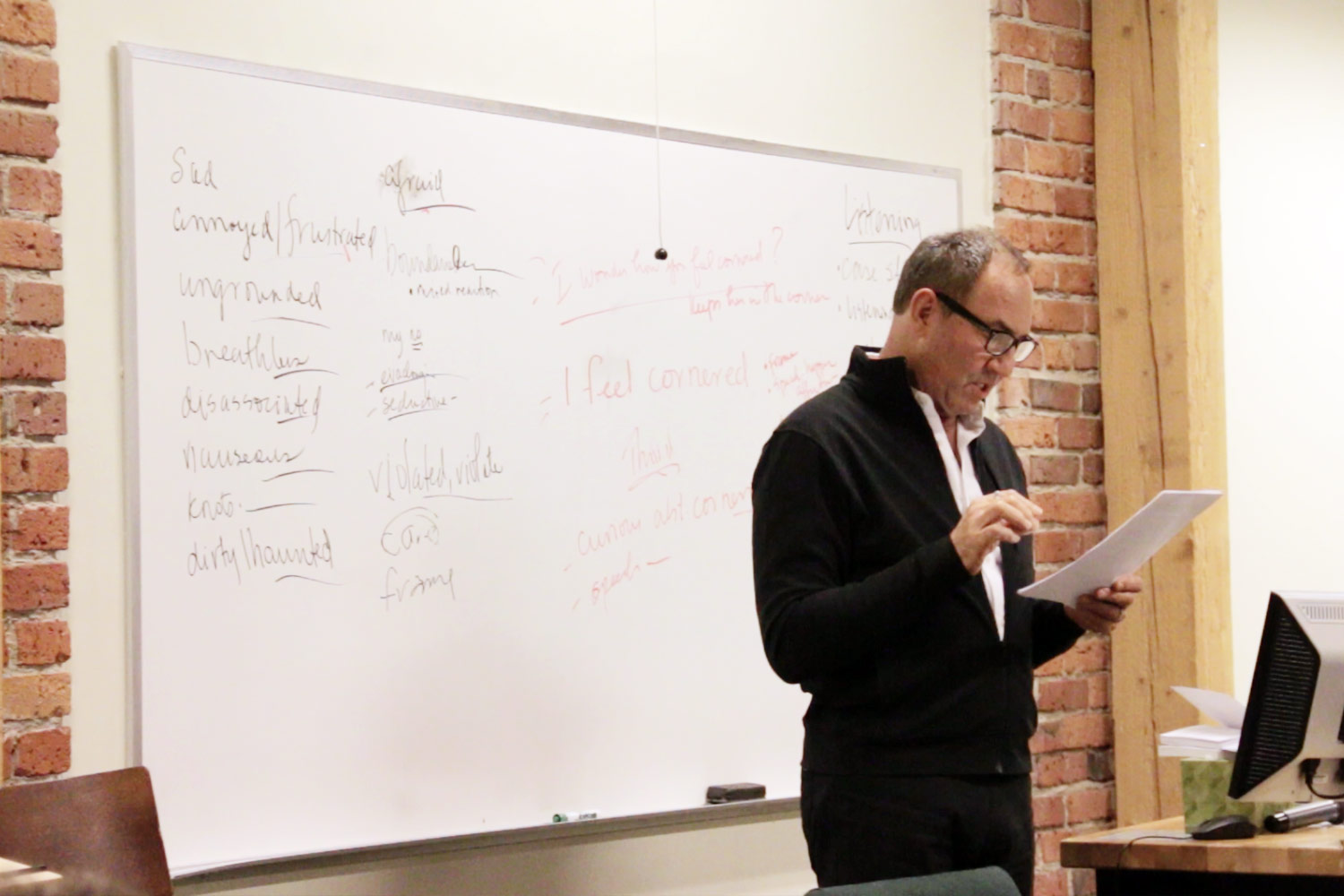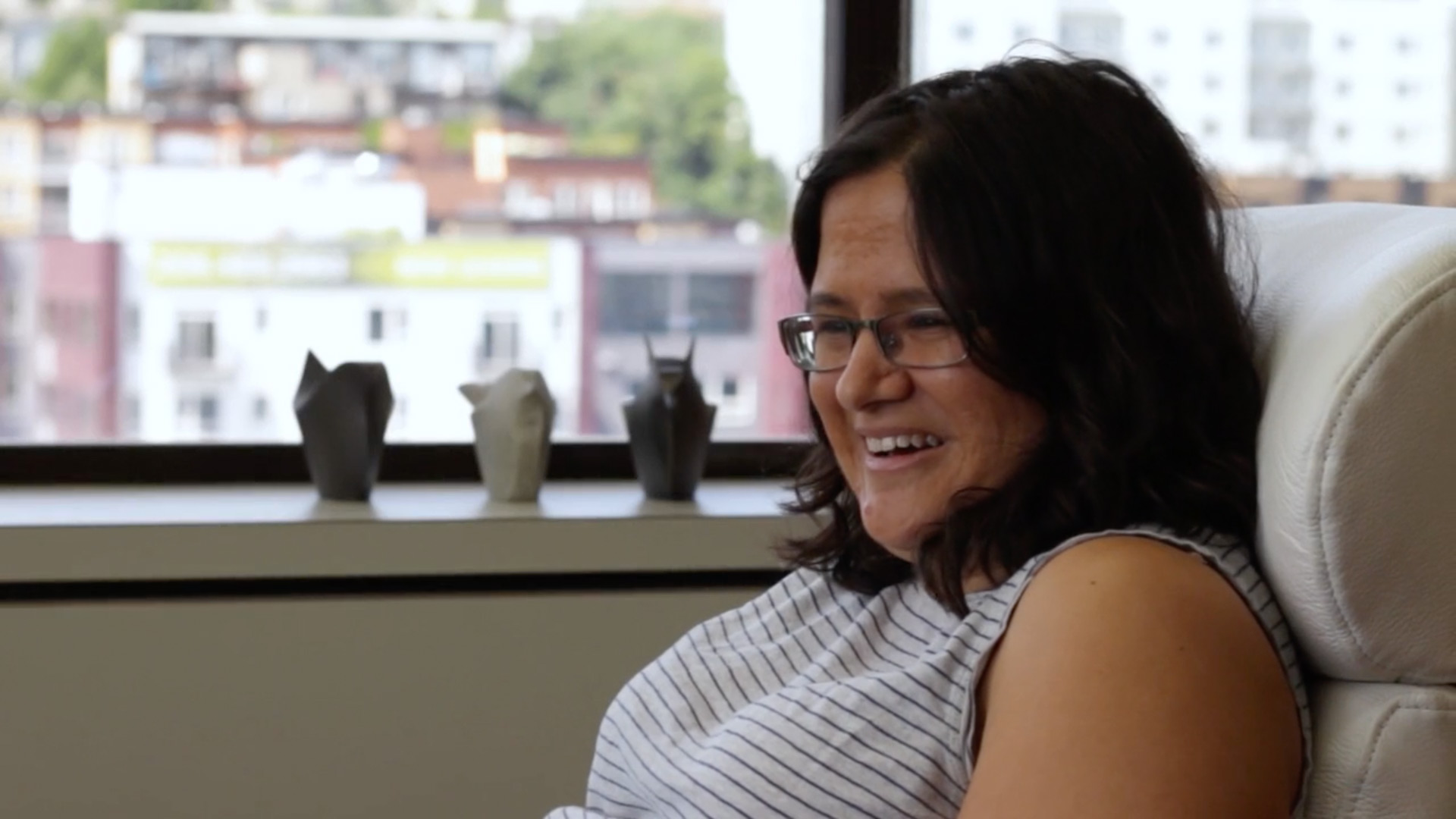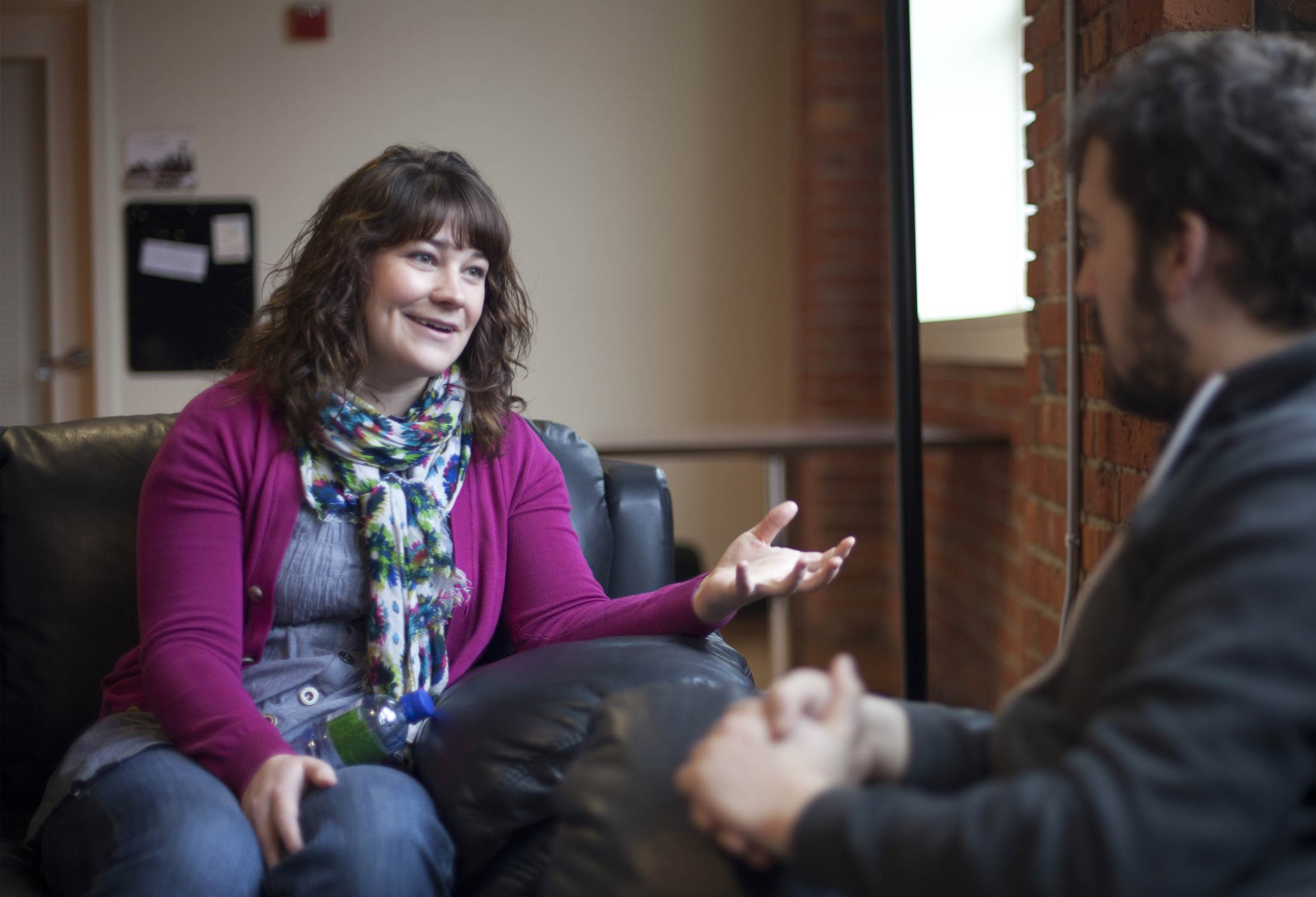
Master of Arts in Counseling Psychology
Live out your incarnational calling through counseling psychology
3 years to complete
66 credit hours of coursework
70 clinical internship opportunities
Our Counseling Psychology graduate program is rooted in the belief that we are created, known, wounded, and healed in the context of relationship. Our incarnational theology gives root to our theory of change, and our psychodynamic methodology develops thoughtful, committed practitioners. We are committed to a holistic pedagogy that integrates mind, body, and soul to equip therapists with the knowledge, hands-on skill, and personal awareness needed to bring healing and transformation. The MA in Counseling Psychology is offered in two formats: on-campus and low-residency. In both formats, classes are held weekly within an relationally engaging learning environment. Students in the on-campus program take the majority of their classes in-person and have the opportunity to learn alongside peers in the low-residency program in online common curriculum and elective classes. In addition to weekly online coursework, students enrolled in the low-residency program take part in residency gatherings for on-campus learning and formative learning experiences.
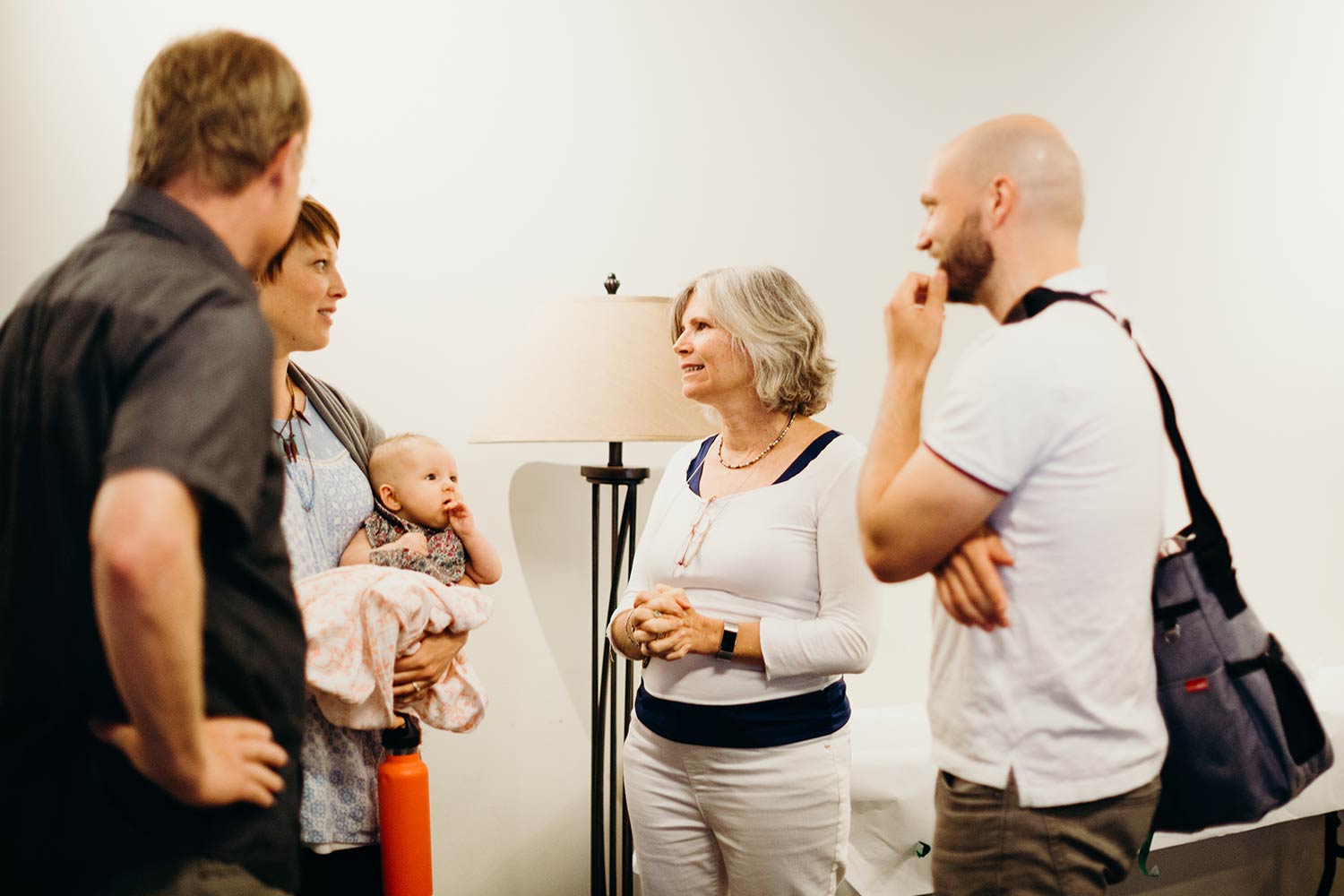
The program equips therapists to serve in a variety of settings, including community mental health, in-patient treatment, and private practice, with specific areas of focus such as trauma and abuse, psychodynamic psychotherapy, attachment, and object relations theory. The MA in Counseling Psychology is designed to meet the education requirements for licensure in the state of Washington as well as many others. Students should be aware of the requirements of other states in order to tailor their studies accordingly.
A comprehensive list of educational requirements for licensure by state can be found here.
Begin your Application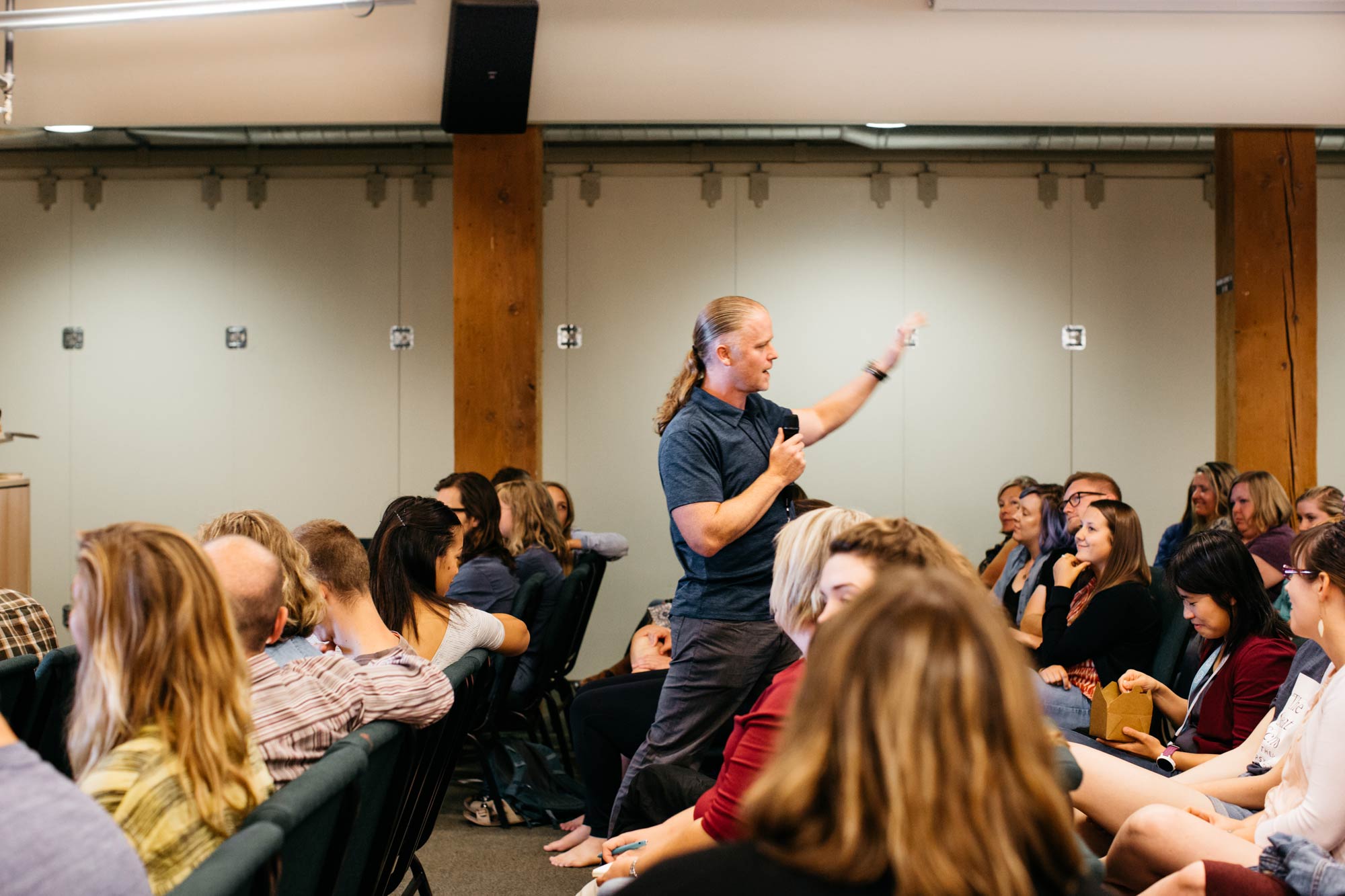
Be equipped to facilitate healing
Through this program, you will:
- Gain the knowledge and capacity to counsel individuals, families, and groups
- Learn to skillfully assess and diagnose
- Gain an in-depth knowledge of counseling theory, developmental psychology, and psychopathology
- Develop an awareness of the impact of your own narrative
- Develop the capacity to receive feedback about yourself in the service of helping others
- Learn to interact with the disciplines of theology, psychology, and culture towards reconciling, transformative relationships
“Research demonstrates that the single most factor for change in psychotherapy is the relationship between the patient and the therapist. Given that, our program places a high emphasis on the development and formation of the self of the therapist.”
Roy Barsness, PhD
Professor of Counseling Psychology Meet Our Core Faculty
The courses listed below reflect a common course of study for the Master of Arts in Counseling Psychology program. Throughout the program, students participate in six residency gatherings: retreat-style curricular events with coursework, workshops, and co-curricular programming. Residencies are offered three times per academic year. For more detailed information about recommended course loads and rotations, browse our Course Rotations.
Year One: Formation and Interpersonal Foundations
The first year of the Counseling Psychology program develops personal awareness and reflection of the interpersonal patterns, giftedness, and hindrances that emerge from your own story. We’ll explore theological, psychological, and cultural foundations for an interpersonal approach to therapy. You are required to complete at least 40 hours of your own therapy to deepen your personal growth outside the classroom.
Our Common Curriculum is a series of interdisciplinary courses integrating the study of theology, biblical studies, psychology, anthropology, and culture and informs the foundation of your studies. Here is a sampling of courses you will take in your first year:
- Intersections: Interdisciplinary Inquiry & Psychological Frameworks (2)
- Critical Reading Lab (1)
- History & Systems (3)
- Frameworks & Intersections (0)
- Intersections: Biblical Traditions & Theological Foundations (2)
- Listening Lab: Part I (1)
- Family Systems (3)
- Contextual Learning Lab (1)
- Intersections: Textual Integrations (1)
- Listening Lab: Part II (1)
- Research & Statistics (3)
- Human Growth & Development (3)
- Biblical Survey (3)
Year Two: Synthesizing Knowledge and Practice
The second year of the Counseling Psychology program builds on the self-reflection and interpersonal awareness begun during year one. Through studying psychology, theology, and culture, you will develop a fuller understanding of human relationships to God, one another, your internal world, and the larger cultural context. You will begin the process of integrating these tools along with clinical, ethical, and multicultural considerations to develop your psychological theory, philosophy of change, clinical mind, and therapeutic style.
Here is a sampling of courses you will take in your second year:
- Assessment, Appraisal, and Diagnosis (3)
- Pre-Internship: Counseling Practicum (3)
- Helping Relationships I (3)
- Psychopathology (3)
- Social and Cultural Diversities (3)
- Professional Ethics & Law (3)
- Helping Relationships II (3)
Year Three: Embodying the Therapeutic Relationship
The third year of the Counseling Psychology program is formatively marked by a clinical internship at a mental health organization or therapy practice in the Seattle community. The internship will give you a real-world context in which to translate your psychological knowledge, interpersonal training, and personal experience of transformation into a clinical setting working with clients. This final year of education allows you to refine your professional skills and vocational calling while reflecting back your experience with faculty, supervisors, and peers.
Here is a sampling of courses you will take in your third year:
- Group Therapy (3)
- Internship I (2)
- Internship II (2)
Residency Gatherings
- Residencies are offered 3 times per academic year
- 6 residencies are required to complete program
- Domestic or international travel residencies option offered each Spring term
“Helping people is lovely and for whose sake do you want to help people? And what do you do when you can't and how do you tolerate that with kindness and strength? ”
Smruti Desai
MA in Counseling Psychology '09 Explore MACP Voices
Ready for the next step?
Connect with us! Request more information or apply today, and we’ll send you everything you need to know begin your journey.

